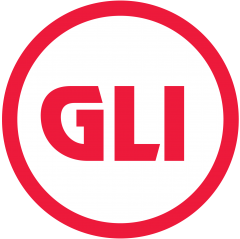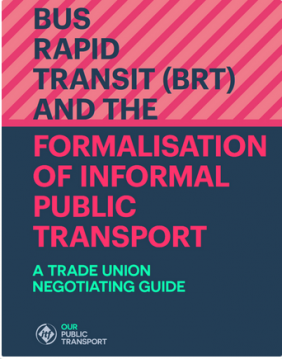GLI Manchester announces that the Bus Rapid Transit (BRT) and the Formalisation of Informal Transport Trade Union Negotiating Guide is now available to view and download.
This negotiating guide was commissioned for GLI Manchester by the International Transport Workers Federation (ITF) as a contribution to the ITF Our Public Transport (OPT) programme.
This negotiating guide attempts to develop policy options for transport unions to consider when planning negotiations with agencies on the introduction of BRT and formalisation of the informal transport industry. It is primarily designed for ITF affiliated transport unions in Africa and Asia where BRT is rapidly expanding, but is hopefully of value to all trade unions organising in urban transport.
It is designed to be used as a briefing for trade union representatives, negotiators, educators and policy researchers faced with proposals for the introduction of BRT and the formalisation of the informal transport industry in their city.
This negotiating guide follows on from previous work GLI Manchester has undertaken in support of the International Transport Workers’ Federation’s (ITF)Our Public Transport campaign. In 2018, GLI Manchester was commissioned to undertaken preliminary research and write a baseline study report to assess the likely impact of BRT for workers in Nairobi. The response to the preliminary report led to proposals for further research which were developed in the full Nairobi Bus Rapid Transit Labour Impact Assessment Research Report, published in January 2019.
GLI Manchester is a not-for-profit company, working closely with a range of global union federations, national trade unions, research institutions and workers’ education organisations. It conducts education, capacity-building and research on international labour movement development and organising strategies. It specialises in political education, organisation and trade union policy with informal economy workers, and the design and management of international workers’ education programmes.

